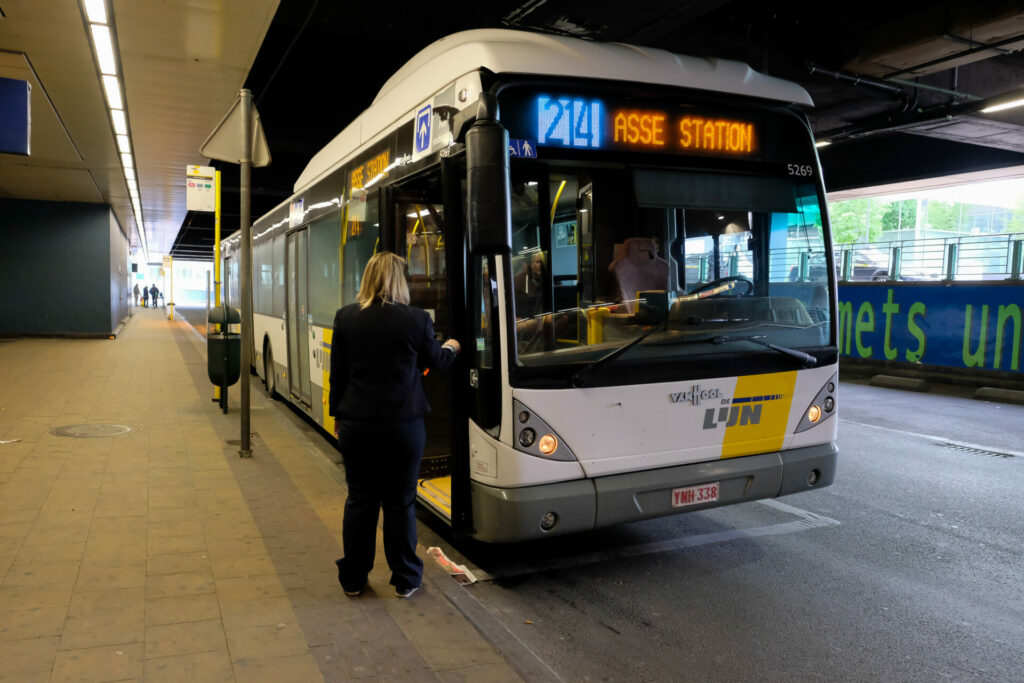Civil society organisations will protest De Lijn's bus network reforms at all major train stations in Flanders this Saturday.
'United Supporters of Public Transport' (VSOV) will lead the protest at the weekend, which will coincide with the launch of major De Lijn reforms aiming to optimise bus routes and strengthen services in the busiest areas. The demonstration will be supported by trade unions who have reassured the public that there will be no disruption to traffic on the day.
From 11:00, protestors will gather at five major train stations: Bruges, Gent-Sint-Pieters, Antwerp-Centraal, Hasselt and Leuven. The aim is to draw attention to their concerns about how the reforms will impact passengers' daily commutes.
De Lijn's new system, entitled 'Hoppin', includes the "straightening out" of bus routes by taking fewer detours from main roads. This has removed over 6,100 stops from the network, added over 2,300 more, and introduced 'Flex buses' for more remote regions, which can be booked up to 30 minutes in advance of the trip.
Critics, however, have decried the changes as a product of a lack of investment in public transport. "There just isn't enough funding at De Lijn," VSOV spokesperson Chris Van Dijck told Belga News Agency. "The priority is obtaining sufficient investment."
Stan Reusen, General Secretary of ACOD TBM, echoes these views. "Public transport in Flanders has been mismanaged for years," he said. "There is too little budget and too little quality."
'Traffic poverty'
Reusen also highlights the inequality likely to result from the reforms. Much of the new system depends on transfers between different modes of transport, including cars, e-scooters and trains. For people without access to a car – particularly those with disabilities – the system becomes much more complicated.
Like Reusen, Dirk Smet of citizen's movement ProMobiel Klein-Brabant/Vaartland (KBV) is deeply worried about increased "traffic poverty" as a result of the reforms. Smet's region Klein-Brabant was a test area for Hoppin in 2023, and from this experience, he has dubbed the system a "dramatic failure."
"There is too little flexibility built in. People won't make their connections," Smet told Gazet van Antwerpen. "The Flex bus often does not reach the passenger's address. And the times on the app cannot be trusted."
Saturday's protests aim above all to highlight these discrepancies and maintain equal access to public infrastructure. "We ask for a Flemish Government that invests in high-quality, sustainable and reliable public transport," Reusen stated. "It can only benefit mobility, the environment and quality of life."

